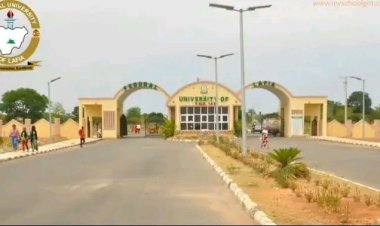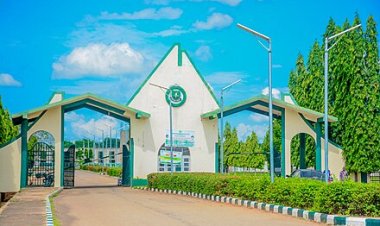ASUU and Demand Reversal of Soaring Electricity Bills
The Academic Staff Union of Universities (ASUU) has raised alarm over the drastic rise in electricity costs faced by Nigerian universities, following a significant increase in electricity tariffs.

The Academic Staff Union of Universities (ASUU) has raised alarm over the drastic rise in electricity costs faced by Nigerian universities, following a significant increase in electricity tariffs. The new rates have led to university electricity bills soaring by 300%, now reaching N21.48 billion monthly.
Prof. Emmanuel Osodeke, ASUU’s National President, has called for a per-unit billing system rather than the current band-based system. The recent tariff adjustment by the Nigerian Electricity Regulatory Commission (NERC) escalated rates for Band A customers from N68/kWh to N225/kWh.
Before the tariff hike, Nigeria's 274 universities collectively paid about N5.25 billion monthly. This figure has now surged to approximately N21.48 billion. For example, the University of Lagos's monthly electricity bill has increased from N180 million to N300 million.
Osodeke criticized the band classification, arguing that billing should reflect actual energy consumption at a uniform rate across all users. He emphasized that the current system unfairly penalizes universities simply based on their classification rather than their actual usage.
The Committees of Pro-Chancellors and Vice-Chancellors of Nigerian Universities have echoed these concerns, urging for a concession in electricity tariffs. Prof. Yakubu Ochefu, Secretary-General of the Committee of Vice-Chancellors of Nigerian Universities (CVCNU), reported substantial increases in electricity costs across various university categories, with some institutions seeing their bills rise from N30 million to N150 million.
Ochefu warned that without government intervention, students might face additional fees to cover these rising costs. The projected impact could mean an extra N80,000 per student annually.
University leaders, including Prof. Lilian Salami of the University of Benin and Prof. Ademola Tayo of Babcock University, have expressed concerns about the tariffs’ impact on educational quality. They argue that the increased costs could severely affect university operations and research capabilities.
Senator Joshua Lidani, Chairman of the Committee of Pro-Chancellors of State-Owned Universities, described the situation as alarming, calling for NERC and distribution companies to offer discounts or concessionary rates for universities. He highlighted that many institutions are already struggling with financial constraints.
The National Association of Nigerian Students (NANS) has also voiced opposition, warning of potential protests if universities impose additional charges on students. The organization called for government intervention to prevent further financial strain on students.
In response to these issues, the Committee of Pro-Chancellors is seeking negotiations with government agencies to address the unsustainable electricity costs and explore possible relief measures.

 Lois Udoye
Lois Udoye 



